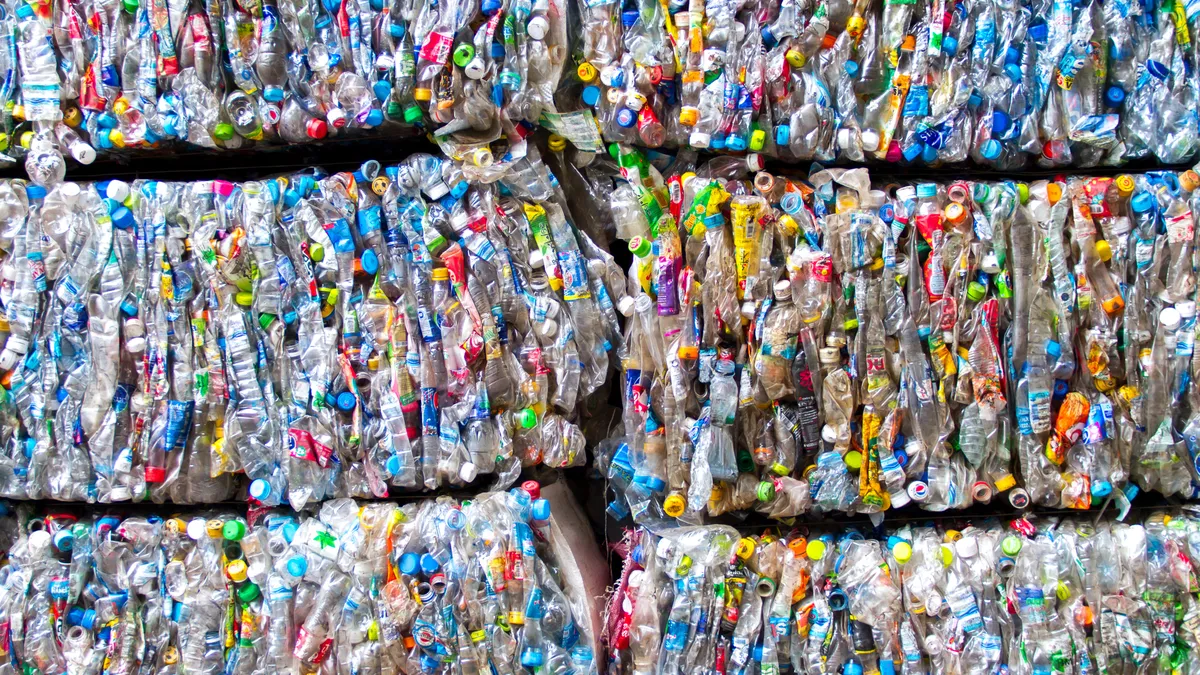Dive Brief:
- The Maryland Department of the Environment has selected Circular Action Alliance as the sole producer responsibility organization for a state advisory council. That council is tasked with making recommendations about a potential future EPR for packaging program.
- Maryland’s governor signed SB 222 in May, which does not create an extended producer responsibility program for packaging but instead calls for a state needs assessment and creates an advisory council to review it. The advisory council must develop recommendations on a proposed EPR plan by Dec. 1, 2024.
- CAA’s role on the advisory council effectively sets it up to become the PRO for a potential future packaging EPR program, according to MDE. Other members of the council, which will represent haulers, recycling and organics processors, environmental justice organizations and other sectors, have not yet been announced.
Dive Insight:
Maryland lawmakers have tried for several years to pass an EPR for packaging bill, and the advisory council and needs assessment laid out in SB 222 represents the first step in implementing such a program. The bill originally set out to establish EPR for packaging, but it was amended numerous times until it was passed as a study bill.
CAA’s role on the council is significant because it will represent the interests of producers and brands in developing any future EPR program in the state. The group includes major companies such as Amazon, The Coca-Cola Co., PepsiCo, Keurig Dr Pepper, Nestlé, Procter & Gamble and Unilever, among others. Colorado chose CAA as its PRO in May, and the group is also active in the other three states with EPR for packaging laws — California, Maine and Oregon.
Being named the PRO on the council is a critical step for CAA, as it has said it aims to operate as an approved PRO in any state that enacts an EPR law. However, it’s too soon to know what that could entail in Maryland. “There is nothing in the bill that speaks to the role [CAA] will play in a future EPR program,” said Olivia Barker, a spokesperson for CAA.
The next step is for an independent consultant to conduct Maryland’s statewide recycling needs assessment. That assessment is due on or before July 30, 2024.
MDE is in the process of choosing the other members of the advisory council that will review the assessment. The council could have up to 21 members representing public and private collectors, local government agencies, trade groups, small businesses, representatives from underserved communities and members of the public.
“The members are being chosen through a careful review by our staff of interested parties and searches conducted to find the best applicable candidates in the state,” said Jay Apperson, deputy director of communications for MDE.
MDE did not provide a timeline for when those members would be chosen. Apperson said the full council could meet as early as the spring, after the needs assessment has been completed. It’s unclear what the next steps or timeline could be after the advisory council presents its findings to the governor and certain state House and Senate committees.
As CAA prepares to work on EPR issues in Maryland, Barker said it also plans to apply to be the PRO in California and also recently submitted a letter of intent to the Oregon Department of Environmental Quality.
As the PRO in Colorado, CAA is required to work with a third-party consultant to conduct a needs assessment in that state. CAA chose HDR, in partnership with Eunomia Research & Consulting, to help conduct stakeholder conversations and collect data needed to implement the EPR program, Barker said.















